
Contents

Kava is a plant-based beverage originating from the South Pacific. For centuries, it has been used to promote relaxation and social bonding.
In recent years, kava has gained popularity in the United States. People seek it out for its natural calming effects, particularly for managing anxiety and stress.
With its growing availability, choosing the best kava product can feel overwhelming. This guide will help you find the top kava options for anxiety relief.
Kava, scientifically known as Piper methysticum, is a tropical plant native to the South Pacific islands. Its roots are traditionally used to prepare a ceremonial drink that has been a cornerstone of Pacific Island culture for thousands of years.
The name “kava” translates to “bitter” in many Pacific languages, reflecting its earthy and slightly astringent taste. The plant belongs to the pepper family, and its roots are the source of its active compounds, known as kavalactones.
Kava is primarily consumed for its calming and sedative effects, which are attributed to the kavalactones. These compounds interact with the brain’s neurotransmitters, particularly GABA (gamma-aminobutyric acid), to reduce anxiety and promote relaxation.
In the United States, kava is available in various forms, including:
Kava has become a natural alternative for those seeking to manage stress and anxiety without relying on prescription medications. Its non-addictive nature and long history of safe use make it an appealing choice for many.
Despite its benefits, it is important to choose high-quality kava products and use them responsibly. Always opt for noble kava varieties, as these are considered safer and more effective than other types.
Kava contains compounds called kavalactones. These interact with the brain’s neurotransmitters to promote relaxation.
Unlike prescription medications and alcohol, kava is non-addictive and doesn’t impair cognitive function. It provides a natural way to unwind after a stressful day.
Regular use of kava can support overall mental well-being. Many people find it helpful for managing social anxiety, work stress, and insomnia.


Not all kava products are created equal. Here are some essential factors to consider when making your choice:

Art of Kava is known for its premium kava powders. Their products are sourced directly from Pacific Island farmers.

Kalm with Kava offers a wide range of kava products, including powders, capsules, and extracts.

Koa Kava specializes in noble kava varieties. Their mission is to make high-quality kava accessible to everyone.

Drink Root focuses on ready-to-drink kava beverages. They provide an alternative for those who prefer not to prepare kava themselves.
To get the most out of your kava experience, follow these tips:
Is Kava Safe?
Kava is generally safe when used responsibly. Its safety largely depends on the type of kava and consumption habits. Opt for noble kava varieties, which are specifically cultivated for their safety and effectiveness. Avoid excessive consumption to prevent potential liver strain. Pregnant and breastfeeding women, as well as individuals with liver conditions, should consult a healthcare provider before using kava.
Can Kava Replace Prescription Medications?
While kava offers significant anxiety-relieving benefits, it is not a replacement for prescription medications or professional therapy. Its primary role is to act as a supplemental aid for mild to moderate stress and anxiety. Individuals with severe anxiety or those on medications should always consult a healthcare provider before incorporating kava into their routine to avoid potential interactions.
How Long Does Kava Take to Work?
Kava’s effects typically begin within 20-30 minutes of consumption. The onset and duration depend on factors like the product type, dosage, and individual tolerance. For example, micronized kava and liquid extracts often work faster than traditional kava preparations. The effects can last anywhere from 2-6 hours.
Does Kava Have Side Effects?
Potential side effects include:
Stick to recommended doses and avoid combining kava with alcohol or other sedatives to minimize risks. Purchasing from reputable brands ensures you’re consuming high-quality, safe products.

Kava, scientifically known as Piper methysticum, is a tropical plant native to the Pacific Islands, particularly Vanuatu, Fiji, Tonga, Samoa, and Papua New Guinea. The term “kava” typically refers to both the plant and the beverage prepared from its roots. For centuries, kava has played a significant cultural, medicinal, and social role in the lives of Pacific Islanders. Its name, derived from the Polynesian word for “bitter,” reflects its earthy and slightly pungent taste.
The Kava Plant
The kava plant is a member of the pepper family (Piperaceae). It thrives in warm, humid climates and is typically grown in fertile, well-drained soils. The plant itself is a shrub, reaching heights of up to 3 meters, with heart-shaped leaves and small flowers. However, it is the plant’s roots that are of primary interest, as these contain the bioactive compounds responsible for its effects.
There are numerous kava cultivars, each with varying potency and flavor profiles. These cultivars are generally categorized into two types: noble kava and non-noble kava. Noble kava is preferred for consumption due to its smoother effects and reduced likelihood of adverse reactions, whereas non-noble varieties are primarily used for medicinal purposes or other non-ceremonial contexts.
The Active Compounds: Kavalactones
The psychoactive and medicinal properties of kava are attributed to a group of compounds called kavalactones. These compounds, found in the roots, interact with the central nervous system to produce effects such as relaxation, stress relief, and mild euphoria. There are six major kavalactones—kavain, methysticin, dihydrokavain, yangonin, dihydromethysticin, and desmethoxyyangonin—which together determine the plant’s potency and effects.
Kavalactones are lipophilic, meaning they dissolve in fat rather than water. This property influences how kava is traditionally prepared and consumed.
Preparation and Consumption
In traditional settings, kava is prepared by grinding or pounding the dried roots into a powder, which is then mixed with water. The mixture is strained, and the resulting liquid is consumed. The preparation process may vary among Pacific Island cultures, but the basic principles remain the same.
Modern methods of kava consumption have evolved to suit global markets. Kava is now available in various forms, including capsules, extracts, teas, and powders. These forms cater to different preferences and provide convenient alternatives for those unfamiliar with traditional preparation.
Kava is typically consumed socially, often during ceremonies or gatherings. It is also used in rituals to foster communication, resolve disputes, or honor guests. For many Pacific Island communities, kava is more than a beverage—it is a symbol of unity and cultural heritage.
The effects of kava are primarily relaxing, making it a popular natural remedy for stress and anxiety. It is commonly used to:


Promote Sleep: Due to its ability to relax the mind and body, kava is often used as a natural sleep aid. It is particularly beneficial for individuals with insomnia or difficulty falling asleep due to stress.

Enhance Social Interaction: In traditional settings, kava is consumed to promote a sense of community and ease social interactions. Its mild euphoric effects can help reduce social inhibitions without impairing cognitive function.
Risks and Precautions
While kava is generally considered safe when consumed responsibly, excessive or prolonged use can lead to adverse effects. The most common side effects include gastrointestinal discomfort, headaches, and dizziness. Chronic heavy use may lead to a skin condition known as “kava dermopathy,” characterized by dry, flaky skin.
Kava has also been associated with rare cases of liver toxicity, particularly when low-quality or non-noble varieties are consumed, or when kava extracts are made using harmful solvents. For this reason, it is essential to choose high-quality, noble kava products and consult a healthcare professional if taking kava alongside other medications.
Legal Status
The legal status of kava varies worldwide. In some countries, such as Fiji and Vanuatu, kava is a culturally significant and widely consumed beverage. In others, including parts of Europe, its use is restricted due to concerns over safety. However, as research continues to affirm its benefits and clarify its risks, attitudes toward kava are gradually shifting.
Conclusion
Kava is a plant deeply rooted in the traditions and daily lives of Pacific Island cultures. Beyond its cultural significance, kava offers a range of therapeutic benefits, from reducing anxiety and stress to promoting relaxation and social bonding. While modern science has begun to validate its traditional uses, responsible consumption remains key to harnessing its benefits safely. For those seeking a natural alternative to synthetic remedies, kava represents a time-honored option with a rich history and enduring appeal.
Kavalactones are the bioactive compounds in kava that give it its relaxing and anxiety-reducing properties. These compounds make up about 3-20% of the dry weight of kava root and are central to its effects.
Types of Kavalactones
There are six major kavalactones responsible for kava’s effects:
These kavalactones work synergistically to provide kava’s unique effects, which range from mild euphoria to deep relaxation.
How to Identify Kavalactones
Kavalactones are often listed as a percentage on kava product labels. Higher percentages generally indicate stronger effects. For targeted relief, look for products that emphasize specific kavalactones, such as kavain or DHK.
Visualizing Kavalactones
Understanding kavalactones can be easier with visual aids. Below are images representing the molecular structures of the primary kavalactones:


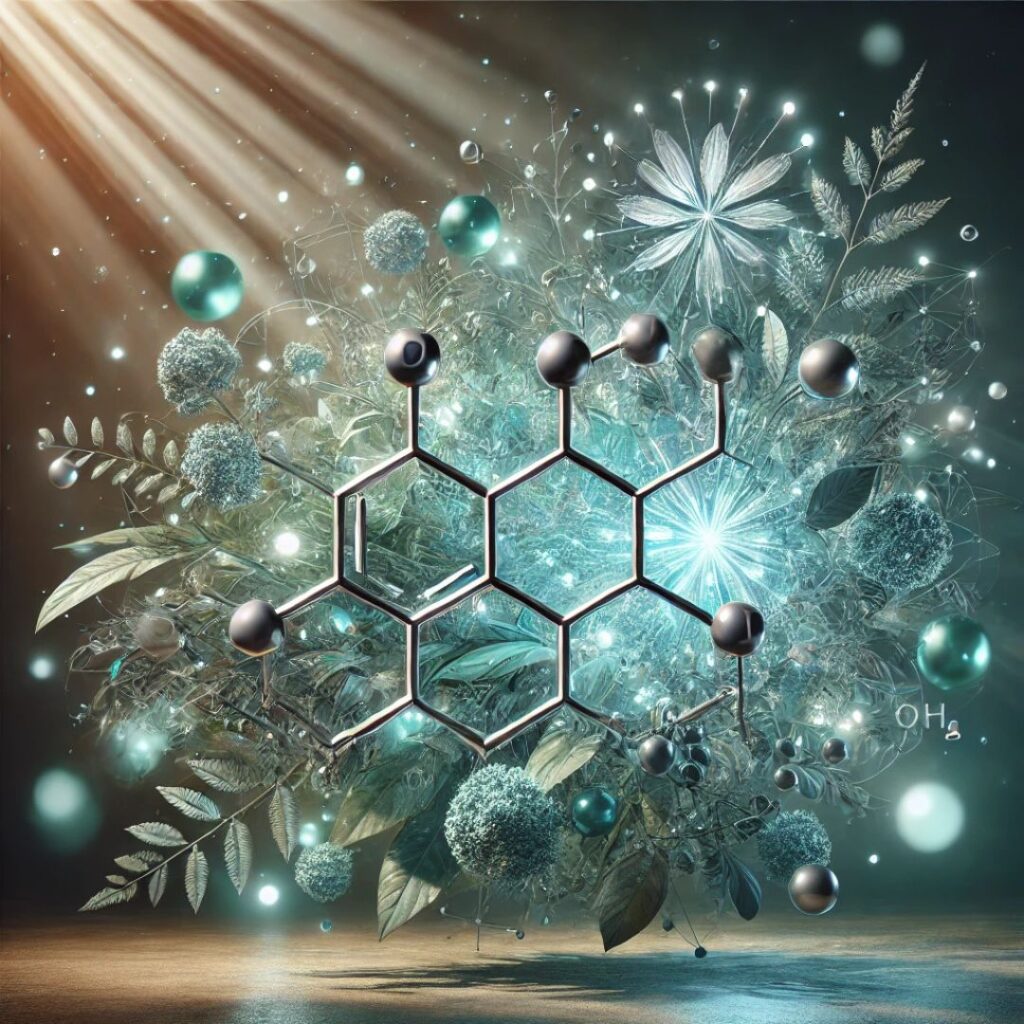
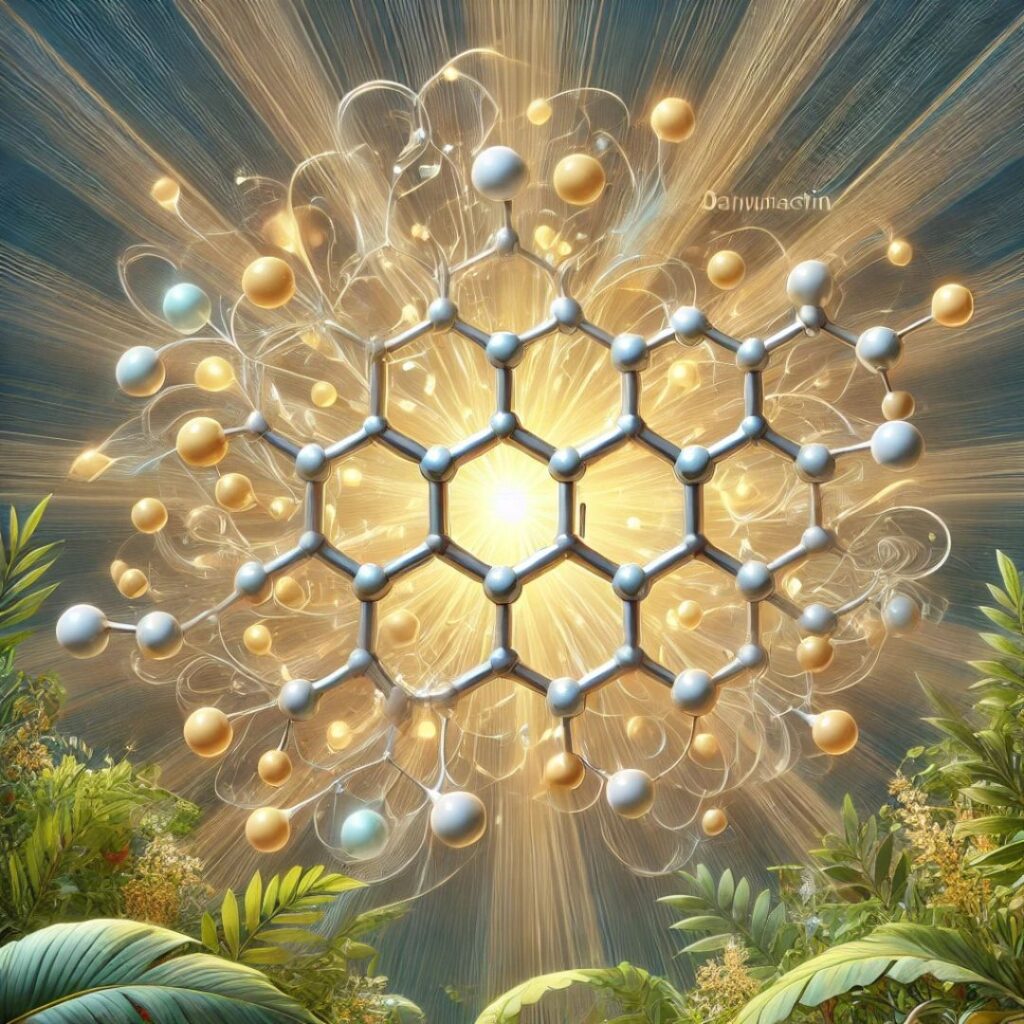


Each structure highlights the unique composition of these compounds, showcasing their role in kava’s effects.
By understanding kavalactones, you can better choose products tailored to your needs, whether for relaxation, mood enhancement, or stress relief.
Selecting the right kava product can greatly enhance your experience and ensure you achieve your desired outcomes. Here’s a closer look at the factors to prioritize when choosing kava:
Kava Quality
The quality of kava plays a crucial role in its effectiveness and safety. Noble kava varieties are preferred for their balanced effects and lower risk of adverse reactions. Avoid tudei kava, which can have more unpredictable and intense effects. Noble kava provides a smooth relaxation experience without impairing cognitive functions.
Preparation Type
Kava is available in several forms, catering to different preferences and lifestyles:
Kavalactone Content
The potency of kava is determined by its kavalactone content, typically listed as a percentage on product packaging. Higher percentages correlate with stronger effects. Beginners should start with lower kavalactone levels and gradually increase as they become accustomed to kava’s effects.
Flavor
Traditional kava has an earthy, somewhat bitter flavor that may be off-putting to some. Flavored options or mixing kava with juices and smoothies can make it more enjoyable. Experimenting with different preparations can help you find a palatable option.
Source
Ethically sourced kava not only ensures fair practices for farmers but also guarantees product quality. Reputable brands often provide information about their sourcing practices. Look for kava grown in Pacific Island nations, where the plant thrives naturally.
By considering these factors, you can make informed decisions and select kava products that align with your preferences and needs. This approach maximizes the benefits of kava while minimizing potential drawbacks.
Each of the leading kava brands has a unique history that contributes to its reputation and appeal. Here’s an exploration of their origins and what makes them trusted names in the industry.
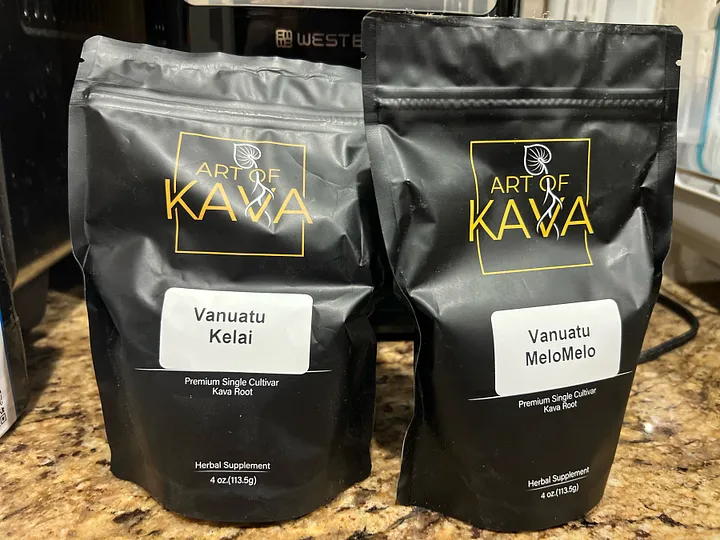
Art of Kava
Art of Kava was founded with a mission to bring the authentic Pacific Island kava experience to a global audience.
They work closely with small-scale farmers in Vanuatu, ensuring ethical sourcing and exceptional quality. The emphasis on purity and traditional preparation methods has earned them a loyal following among kava enthusiasts.
Their flagship product, “Premium Vanuatu Kava,” reflects their commitment to providing a smooth and genuine relaxation experience.
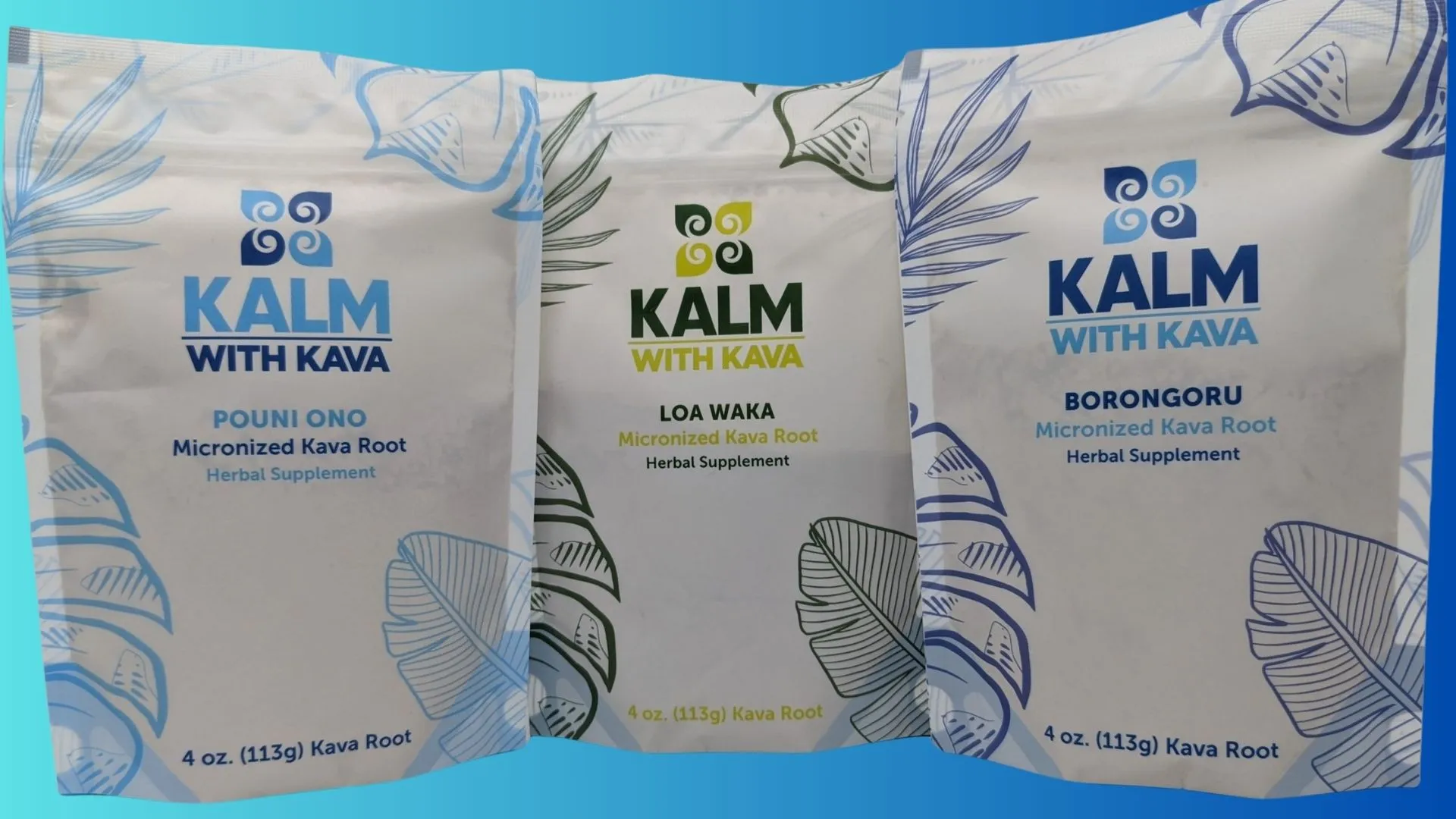
Kalm with Kava
Kalm with Kava is a pioneer in the U.S. kava community, offering a diverse range of products that cater to various preferences.
From powders to capsules and extracts, they’ve built their brand on reliability and versatility.
Their dedication to customer education and community engagement has solidified their status as a trusted name.
The “Micronized Kava Powder” showcases their ability to combine potency with convenience, making it a favorite among regular users.
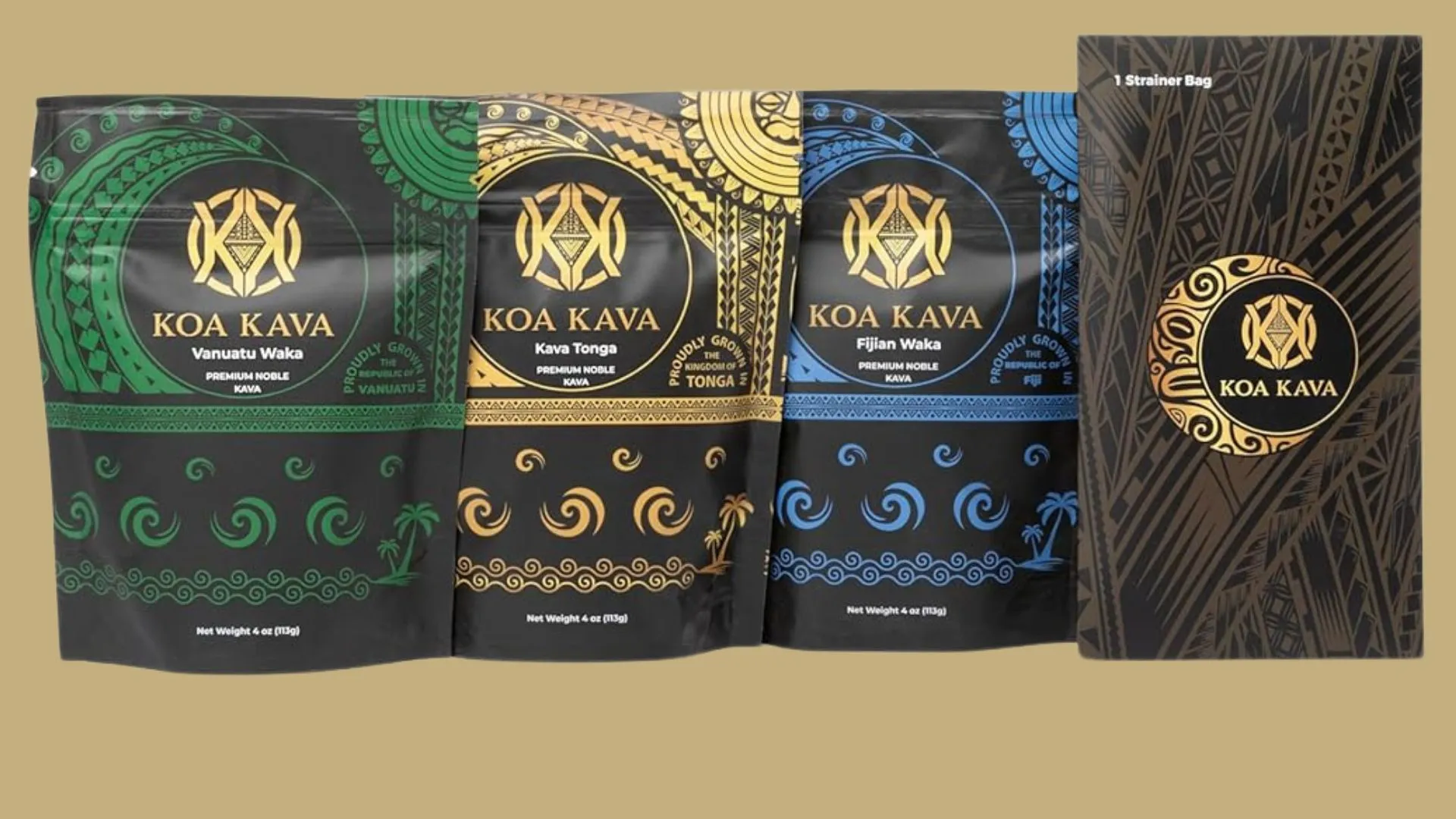
Koa Kava
Koa Kava emerged as a brand focused on making kava accessible to modern consumers.
Based in the United States, they combine Pacific Island traditions with contemporary convenience.
Their instant kava mixes are a testament to their innovation, allowing users to enjoy kava without extensive preparation.
By sourcing only noble kava varieties, Koa Kava maintains a high standard of quality while introducing new audiences to the benefits of kava.
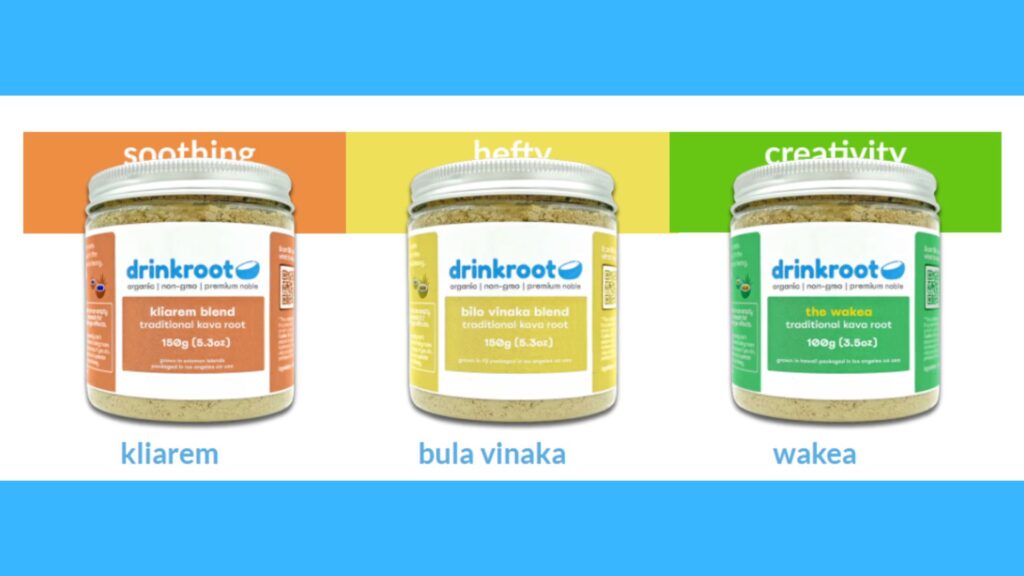
Drink Root
Drink Root was established with the idea of simplifying kava consumption.
Recognizing the growing demand for ready-to-drink options, they created a range of instant kavas that are both effective varied in strength.
Their partnerships with ethical suppliers ensure that every bottle delivers consistent relaxation.
Drink Root’s commitment to sustainability and quality has made them a standout choice for on-the-go kava enthusiasts.
Kava is a powerful tool for managing anxiety and stress.
In conclusion, when selecting the best kava for anxiety and stress relief, it’s essential to consider several key factors.
Prioritize quality by opting for noble kava, which offers an ideal combination of relaxation and mental clarity.
The preparation type also matters—whether you prefer powders, micronized options, or instant kava, choose one that fits your lifestyle.
Pay attention to kavalactone percentages, as higher amounts typically indicate stronger effects.
Don’t forget the flavor; while traditional kava boasts an earthy taste, it’s part of the experience.
Finally, ensure you source your kava from reputable brands committed to ethical practices.
By choosing high-quality products and using them responsibly, you can enjoy its many benefits.
Brands like Art of Kava, Koa Kava, Drink Root, and Kalm with Kava offer excellent options for every preference and lifestyle. Take the time to explore their offerings and discover what works best for you.
For more insights and guidance on your kava journey, check out our related resources offered by Kava Facts, IKO (International Kava Organization), MDPI (Multidisciplinary Digital Publishing Institute) and Medicon Medical Services to enhance your understanding and enjoyment.
So, with the right kava, relaxation and peace of mind are just a sip away. Start your journey to stress-free living today!
Stay updated on the latest kava news, exclusive product reviews, and special offers by subscribing to our newsletter.